Energy Efficiency
Energy efficiency is one of the key pillars of Morocco’s national energy policy and a vital lever for achieving its energy transition. The Kingdom has set an ambitious target to reduce final energy consumption by 20% by 2030, through the implementation of concrete programs and actions targeting key sectors of the national economy such as transport, buildings, industry, and agriculture.
This approach forms part of a broader, ambitious national strategy aimed at strengthening energy independence, optimising resource use, and combating climate change, particularly through the reduction of greenhouse gas emissions. For several years, Morocco has been implementing major structural initiatives and reinforcing its institutional and technical capacities to firmly establish energy efficiency as a strategic driver of its energy policy and socio-economic development.
In line with its own energy transition strategy, based on sobriety, efficiency, and decarbonised electrification, Germany supports Morocco’s efforts to implement its National Energy Efficiency Strategy (2030 horizon).
Milestones
Launch of the National Energy Strategy (NES)
2009 – Among its key objectives, this strategy aims to increase the share of renewable energy in electricity generation to 52% by 2030 and to strengthen control over energy demand, with a strong emphasis on energy efficiency. It also seeks to enhance energy supply security, ensure generalised access to affordable energy, and preserve the environment.
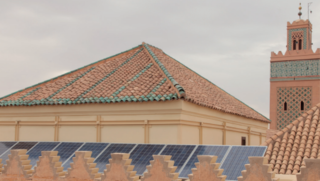
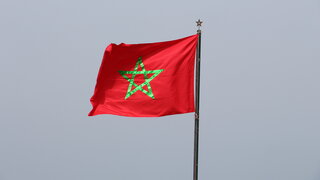
Adoption of Law No. 47-09 on Energy Efficiency
2011 – This law establishes the fundamental principles for promoting energy efficiency nationwide. It is complemented by decrees that set out:
- Minimum Energy Performance Standards (MEPS) for appliances and equipment,
- Mandatory energy audits for consumers whose thermal and/or electrical energy use exceeds sector-specific thresholds, along with the accreditation conditions for energy audit bodies,
- The Thermal Building Regulation in Morocco (RTCM), and
- Regulations governing Energy Service Companies (ESCOs).
Creation of the Moroccan Agency for Energy Efficiency (AMEE)
2016 – In 2016, the Moroccan Agency for Energy Efficiency (AMEE) was established through the transformation of the National Agency for the Development of Renewable Energy and Energy Efficiency (ADEREE), which itself succeeded the Renewable Energy Development Center (CDER) founded in 1982.
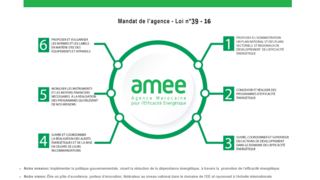
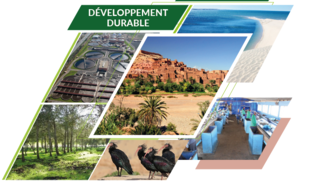
Adoption of the National Sustainable Development Strategy (SNDD) 2030
2017 – Aligned with the United Nations 2030 Agenda, this strategy explicitly integrates ambitious goals related to energy efficiency. It seeks to reduce energy consumption and promote sustainable practices across key sectors. Updated in 2023 to extend through 2035, the strategy now places a stronger emphasis on energy, water management, innovation, and ecological justice.
Publication of the National Energy Efficiency Strategy (SNEE)
2020 – This strategy highlights energy efficiency as a central priority, targeting a 20% reduction in national energy consumption by 2030 through the implementation of around 80 measures across the main sectors: transport, buildings, industry, agriculture, and public lighting.
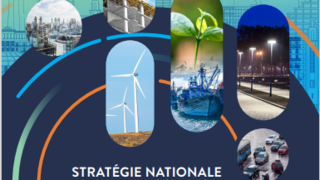
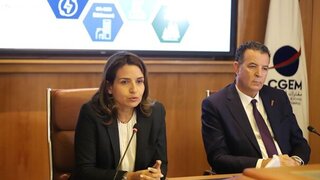
Publication of the Long-Term Low-Carbon Strategy (SBC) – Morocco 2050
2021 – This long-term strategy calls for accelerating renewable energy development to achieve a 96% decarbonised electricity mix by 2050 and promoting green hydrogen to decarbonise industry and freight transport. It also emphasises mainstreaming energy efficiency and the efficient management of natural resources across all sectors, particularly industry, buildings, and transport.
Update of Morocco’s Nationally Determined Contribution (NDC)
2025 – The NDC 2.0 explicitly positioned energy efficiency as a central lever for reducing greenhouse gas emissions. Building on that, NDC 3.0 further strengthens this role, setting a target of 53% GHG reduction by 2035 (compared to 45.5% in NDC 2.0). It highlights energy performance within national and territorial policies and includes five unconditional and five conditional adaptation projects (subject to international financing) focused on enhancing energy efficiency.
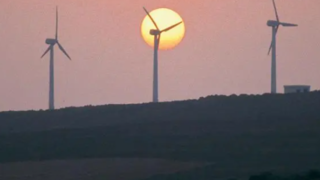
National Energy Efficiency Strategy
In 2020, the Moroccan government released an official document entitled National Energy Efficiency Strategy by 2030. This strategy complements the National Energy Strategy (NES) launched in 2009 by deepening the specific measures and objectives related to energy efficiency. The Kingdom aims for a 20% reduction in national energy consumption by 2030 compared to a business-as-usual scenario.
This target is broken down into specific objectives for the sectors that represent the largest energy consumers.
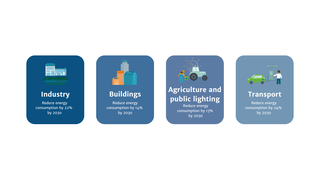
To improve energy use in these sectors, the strategy identifies five key orientations, translated into concrete actions structured around the following priorities:
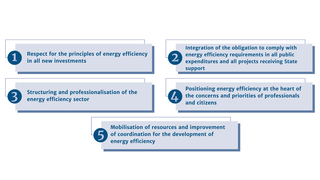
“We also commit Our government to accelerating the implementation of the necessary legislative and regulatory measures to institutionalise the appropriate mechanisms for energy efficiency and the use of renewable energies across all [...] sectors."
